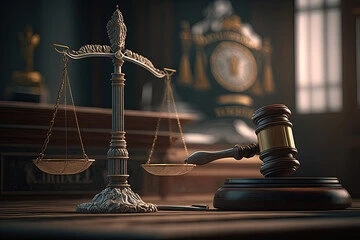Navigating Intellectual Property Disputes in Divorce Proceedings: A Comprehensive Overview
In the intricate landscape of divorce proceedings, disputes over intellectual property (IP) add a layer of complexity that demands careful consideration. Intellectual property, including patents, trademarks, copyrights, and trade secrets, holds substantial value and requires a unique approach in the courtroom. This comprehensive guide explores how the court handles disputes over intellectual property during divorce proceedings, shedding light on the key considerations and legal frameworks involved.
Identification and Valuation of Intellectual Property Assets:
The Initial Challenge: The first step in addressing IP disputes is the identification and valuation of the intellectual property assets at stake. This involves determining the fair market value of patents, trademarks, copyrights, and trade secrets owned by one or both spouses.How Quickly Can You Get A Divorce in New York
Categorization of Intellectual Property:
Distinguishing Between Types: Courts must differentiate between various forms of intellectual property, each governed by its unique set of laws. For instance, copyrights are treated differently from patents, and understanding these distinctions is crucial for an equitable resolution.
Community Property vs. Separate Property:
Legal Ownership Framework: Jurisdictions often classify property as community or separate. The court's task is to establish whether the intellectual property is considered joint marital property, acquired during the marriage, or if it falls under separate ownership, acquired before the marriage or through inheritance.
Expert Witness Testimony:
Expert Evaluation: Due to the specialized nature of intellectual property, expert witnesses often play a pivotal role in divorce proceedings. Their testimony is instrumental in providing a nuanced understanding of the value, nature, and significance of the intellectual property assets in question.
Equitable Distribution Principles:
Fair and Just Allocation: Courts typically adhere to principles of equitable distribution, striving to allocate assets in a manner that is fair and just. Balancing the contributions of each spouse to the acquisition and development of intellectual property is essential in reaching an equitable distribution.Is there A Waiting Period for Divorce in New York
Licensing and Royalties:
Ongoing Revenue Streams: In cases where intellectual property generates ongoing revenue, the court must determine how to allocate licensing fees or royalties. This involves careful consideration of the contribution of each spouse to the creation and maintenance of the intellectual property during the marriage.
Protecting Trade Secrets:
Confidentiality Concerns: In cases involving trade secrets, maintaining confidentiality is paramount. Courts must navigate the delicate balance between disclosing information necessary for a fair resolution and safeguarding the proprietary nature of trade secrets.
Post-Divorce Enforcement and Compliance:
Ensuring Adherence: The court's role extends beyond the divorce decree, as it must establish mechanisms for post-divorce enforcement of intellectual property agreements. This includes ensuring compliance with any stipulations regarding the use, sale, or transfer of intellectual property.How Quickly Can You Get A Divorce in New York
Navigating intellectual property disputes in divorce proceedings requires a delicate blend of legal expertise and an understanding of the unique challenges posed by these intangible assets. Courts must carefully weigh the contributions of each spouse, assess the value of intellectual property, and craft equitable solutions that safeguard the rights and interests of both parties involved. As the legal landscape evolves, staying informed about the latest precedents and legal developments is crucial for practitioners and individuals navigating the complex intersection of divorce and intellectual property law.



